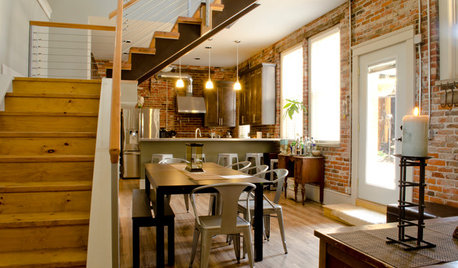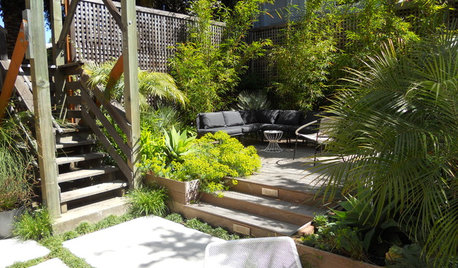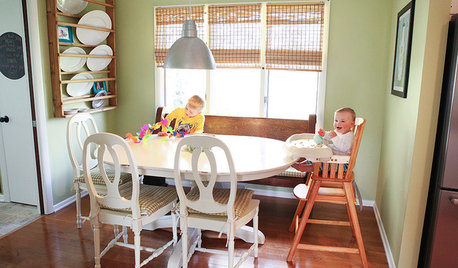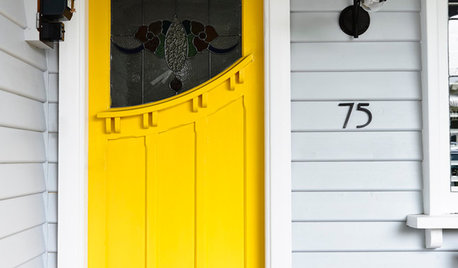hello, and alfalfa question
biscuitZ5IA
19 years ago
Related Stories

FARM YOUR YARDHello, Honey: Beekeeping Anywhere for Fun, Food and Good Deeds
We need pollinators, and they increasingly need us too. Here, why and how to be a bee friend
Full Story
WHITERoom of the Day: Bye-Bye, Black Bidet — Hello, Classic Carrara
Neutral-colored materials combine with eclectic accessories to prepare a master bath for resale while adding personal style
Full Story
HOUZZ TOURSHello, Bordello — an Ohio Loft Goes From Sinning to Winning
This onetime house of ill repute is now making good as a welcoming home, office and cocktail bar
Full Story
GARDENING GUIDESGet on a Composting Kick (Hello, Free Fertilizer!)
Quit shelling out for pricey substitutes that aren’t even as good. Here’s how to give your soil the best while lightening your trash load
Full Story
PATIOSPatio Details: Good-bye Cracked Concrete, Hello Lush Garden
A San Francisco couple replace an old parking space with a barefoot-friendly outdoor retreat for eating, entertaining and play
Full Story
CONTEMPORARY HOMESHouzz Tour: A Creative Renovation Says Hello
A bland brick expanse at the street side of a corner house has become a very cool local landmark. All it took was a simple thought
Full Story
MOVINGSaying Goodbye to One Home and Hello to Another
Honor your past and embrace your future with these ideas for easing the transition during a move
Full Story
KITCHEN OF THE WEEKKitchen of the Week: Goodbye, Honey Oak — Hello, Minty Green
After more than 30 years, the Kloesels revamped their space to reflect their rural country town and Victorian-style home
Full Story
COLORSay Hello to Minion Yellow, Pantone’s Newest (and Happiest) Color
This Hollywood-inspired shade is anything but despicable. Here’s how to work the cheerful and cheeky color into your home
Full Story
WORKING WITH PROS12 Questions Your Interior Designer Should Ask You
The best decorators aren’t dictators — and they’re not mind readers either. To understand your tastes, they need this essential info
Full Story





javern
koszta_kid
Related Professionals
Americus Landscape Contractors · Brookline Landscape Contractors · Dickinson Landscape Contractors · Fort Myers Landscape Contractors · Melrose Landscape Contractors · Paso Robles Landscape Contractors · Woodburn Landscape Contractors · Woodbury Landscape Contractors · East Norriton Landscape Contractors · Cincinnati Decks, Patios & Outdoor Enclosures · Clute Decks, Patios & Outdoor Enclosures · Dracut Decks, Patios & Outdoor Enclosures · Parker Decks, Patios & Outdoor Enclosures · Randallstown Decks, Patios & Outdoor Enclosures · Sun Lakes Decks, Patios & Outdoor Enclosuresbbriggs
biscuitZ5IAOriginal Author
ironbelly1
biscuitZ5IAOriginal Author